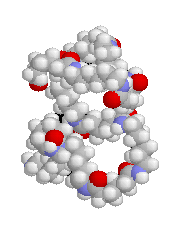Customized Polymers: Customized Solutions for Unique Applications
Customized Polymers: Customized Solutions for Unique Applications
Blog Article
Exploring the Varied Applications and Benefits of Polymers in Different Industries
Polymers, with their diverse series of residential properties and functionalities, have become vital in numerous sectors, each gaining one-of-a-kind benefits from their application. Polymers. From enhancing safety and performance in the automotive sector to revolutionizing clinical gadgets in the health care sector, polymers play a crucial role. In addition, their green nature is altering the landscape of sustainability techniques. As we explore the depths of polymers in electronic devices, we uncover cutting-edge developments, while their architectural honesty changes the world of construction and infrastructure. The pervasive influence of polymers across markets is a testimony to their adaptability and versatility, shaping the future of plenty of markets.
Automotive Sector Applications
Polymers play a crucial function in boosting the performance and durability of different parts within the automotive field. These versatile products are thoroughly utilized in the production of various components, ranging from indoor components to under-the-hood applications. One popular usage of polymers in the automotive market remains in the production of lightweight elements. By changing traditional steel components with polymer-based alternatives, automobiles can achieve improved fuel performance without jeopardizing on toughness or safety.

Healthcare Sector Advantages
In various health care applications, the advantages of using polymers are widely recognized for their diverse variety of helpful residential or commercial properties. Polymers play a vital duty in the medical care sector as a result of their versatility, biocompatibility, and cost-effectiveness. One of the primary advantages of polymers in health care is their capability to be customized to certain demands, such as versatility, durability, and biodegradability, making them perfect for a variety of medical applications.
Polymer-based materials are extensively made use of in clinical gadgets, such as catheters, implants, prosthetics, and medication delivery systems, due to their biocompatibility and ability to imitate natural cells. These products can reduce the threat of sensitive responses or denials, improving client safety and end results. In addition, polymers are lightweight, making them ideal for wearable clinical gadgets and making sure person convenience.
In addition, polymers allow the growth of cutting-edge therapy techniques, such as hydrogels for tissue design and nanocomposites for targeted drug distribution. Their ease of processing and sanitation makes them necessary for maintaining high requirements of hygiene in health care setups. In general, the diverse benefits of polymers contribute substantially to advancements in medical innovation and patient care.
Environmental Advantages of Polymers

Additionally, polymers can add to energy financial savings because of their lightweight nature. In markets such as transport, lightweight polymer materials can assist lower gas usage and greenhouse gas discharges. Furthermore, polymers can make it possible for the advancement of energy-efficient items such as insulation products that enhance power preservation in structures.
In addition, polymers play an important function in decreasing water air pollution. The usage of polymer-based purification systems can effectively eliminate toxins and impurities from wastewater, guarding water sources and environments. In general, the ecological advantages of polymers make them valuable properties in promoting sustainability and environmentally friendly methods across numerous sectors.
Polymers in Electronics and Innovation
Considering the raising need for innovative and lasting options in contemporary industries, the assimilation of sophisticated polymer innovations in the world of electronic devices and technology has actually become an essential method for driving effectiveness and efficiency. Polymers have changed the electronic devices industry by making it possible for the production of lighter, much more adaptable, and long lasting electronic devices. From mobile phones to medical tools, polymers play a crucial role in enhancing item style and capability.
One considerable benefit of polymers in electronics is their shielding properties, which aid safeguard fragile electronic elements from ecological elements and electric interference. Furthermore, polymers are important in the growth of flexible screens, wearable innovation, and published electronics, using endless opportunities for creating wise and interconnected devices.
Moreover, making use of polymers in digital product packaging has led to developments in miniaturization and thermal monitoring, enhancing the general efficiency and integrity of electronic systems. As innovation remains to develop, the flexibility and versatility of polymers will undoubtedly drive even more development in the electronic look at this now devices sector, forming the future of modern technology.
Duty of Polymers in Construction and Infrastructure
Polymers offer numerous benefits in the construction market due to their versatility, longevity, and cost-effectiveness. One essential duty of polymers in building and construction is their usage in coatings and sealants, offering defense versus ecological variables such as wetness, UV radiation, and corrosion.
Moreover, polymers play an essential function in sustainable construction practices by allowing the development of energy-efficient structures. Insulating materials made from polymers help control interior temperature levels, minimizing the demand for heating and cooling systems and inevitably reducing energy intake. More hints Furthermore, using polymer-based composites in infrastructure jobs such as bridges and roads improves their durability and reduces upkeep costs. On the whole, the incorporation of polymers in construction and infrastructure showcases their substantial influence on modern engineering methods.
Conclusion
Finally, polymers play a critical role in various industries such as automotive, health care, environmental, electronics, and building. Their versatile residential properties make them useful in producing cutting-edge services and items. From enhancing fuel performance in lorries to enhancing medical tools, polymers use many benefits. Furthermore, their effect on minimizing waste and advertising sustainability highlights their relevance in why not try this out modern-day applications. The extensive use polymers shows their considerable contribution to progressing technology and enhancing quality of life.
Report this page